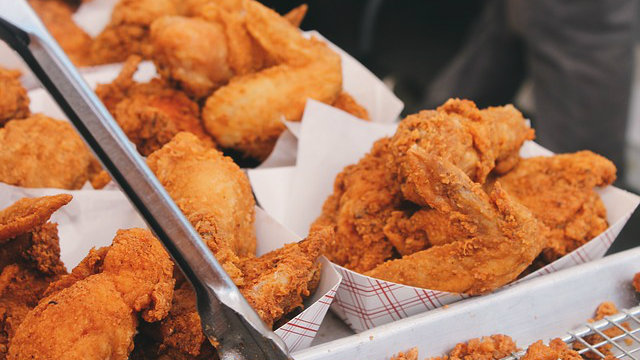The 2018 Canada Food Price Report which was released late last year predicted a big year for restaurants, as Canadians are choosing to dine out more often. Overall, food prices were estimated to rise between 1% and 3% in 2018. A difficult start to the year on the S&P/TSX Index, which has now declined 6% in 2018 as of close on February 12, should also spark interest in stocks in this segment as potential buy-low opportunities.
Today, we are going to look at two companies that will be looking to maneuver differently in light of the trends reported in the food price report.
Restaurant Brands International Inc. (TSX:QSR)(NYSE:QSR)
RBI, which owns and operates Tim Hortons, Burger King, and Popeyes Louisiana Chicken chains, has seen its stock drop 2.3% in 2018. RBI stock has jumped 12.3% year over year, and it has stood out as one of the more attractive options in the restaurant industry. Shares rose 6.18% on February 12 after RBI released its 2017 fourth-quarter and full-year results. The results saw the slowing trend at Tim Hortons and Popeyes continue, while numbers at Burger King remained strong.
In the fourth quarter, revenues grew to $1.23 billion from $1.11 billion in Q4 2016. RBI posted net income of $395 million compared to $118.4 million, and adjusted EBITDA jumped 10.8% on an organic basis to $606.3 million. For the full year, RBI posted total revenues of $4.57 billion and almost doubled net income to $626.1 million from $345.6 million in 2016.
Comparable sales in constant currency were down 0.1% for the full year at Tim Hortons, up 3.1% at Burger King, and down 1.5% at Popeyes.
Maple Leaf Foods Inc. (TSX:MFI)
Maple Leaf is a Mississauga-based food producer focused primarily on prepared meats. Maple Leaf stock has dropped 5.1% so far in 2018. The company is expected to release its fourth-quarter and full-year results for 2017 in February.
In the third quarter, Maple Leaf posted sales growth of 6.6%, and net earnings jumped 18.2% to $37.6 million. Maple Leaf’s March 2017 acquisition of Lightlife Foods should also pique interest going forward, as consumer trends are shifting away from meat for younger demographics. The company has moved to ensure that it will be prepared to cater to this market going forward.
The company last delivered a dividend of $0.11 per share, representing a 1.3% dividend yield.
Which is the better buy?
We have yet to see how Maple Leaf performed in the fourth quarter, but results should be released very soon. In any case, RBI passed through a difficult 2017, and its Burger King brand has been carrying the load as Tim Hortons and Popeyes chains have failed to make up much ground in sales growth. This year will be crucial, especially in light of further controversy at Tim Hortons chains, to see if this trend will be broken.
I like Maple Leaf ahead of its Q4 and full-year earnings for 2017. The company has demonstrated steady sales growth and boasts a solid dividend.








